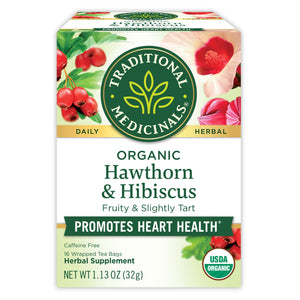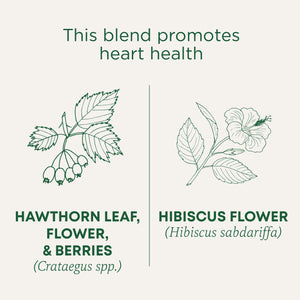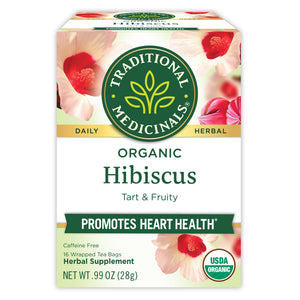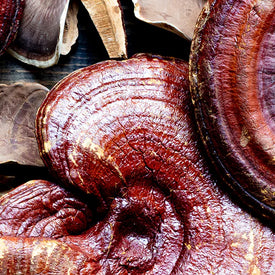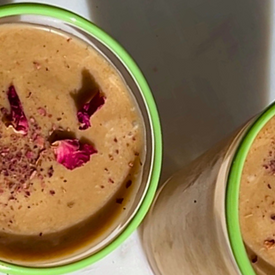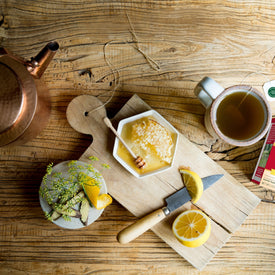During the month of February, when all marketing seems to center on triumphs of the heart, it’s important to remember that not every heart is celebrating Valentine’s Day; many hearts need physical and emotional nurturing. That’s when we herbalists love to sing the praises of hawthorn, one of nature’s resilient trees and Western herbalism’s most widely used plants for promoting heart health.* Beloved around the world since the time of the ancient Chinese, Greeks and Native Americans, hawthorn remains a staple in herbal apothecaries as a tonic and natural support for all things related to the heart.
The hardy Hawthorn (Crataegus spp.) consists of over 280 species whose dense, thorny, deciduous trees thrive in temperate climates. A member of the rose family, the plant blooms clusters of pink or white flowers in the late spring, which then give way to red berries, called “haws,” in late summer. Our herbalists use the leaves, flowers and haws of Crataegus monogyna, or “one-seeded hawthorn,” for use in our Hawthorn with Hibiscus tea—an important species in Traditional European Herbal Medicine. Native to Europe, Asia, and North America, hawthorn often gathers into thick hedgerows, used throughout history for their strength to enclose pastures and meadows. In fact, historians claim that the ancient hedgerows in France’s Normandy region were so robust that they made the D-Day Battles of World War II even more challenging. Some hawthorn plants can live for up to 200 years.

Hawthorn lends its innate resilience to the circulatory system in countless ways. As hearty as it is hardy, herbalist Rosemary Gladstar writes that hawthorn’s haws, leaves and flowers contain beneficial flavonoids and procyanidins “to feed and tone the heart.” Flavonoids help promote everyday wellness and support heart health, while procyanidins, as condensed tannins, add a protective benefit much like red wine grapes. What’s more, herbalists believe that the energetic properties of hawthorn can help lift the spirits from heartbreak and grief.
First praised by the ancient Greek physician Dioscorides in the first century A.D. and in the ancient Chinese herbal, Tang-Ben-Cao, in 659 A.D., hawthorn has since held an affectionate place in herbalists’ hearts. Beyond herbal medicine, hawthorn has also played a role in herbal folklore to ward off evil spirits. To shield newborn babies from harm, the Romans would hang hawthorn sprigs over cradles. Other pagans strung hawthorn flowers into garlands for use in May Day celebrations. Early Christians associated the plant with Jesus’ crown of thorns and hung it over doorways for protection during the Middle Ages.
Whether physical, emotional or spiritual, hawthorn’s herbal powers seek to protect and support matters of the heart. Delicious served piping hot, or even brewed hot and served over ice, our Hawthorn with Hibiscus tea offers bright berry flavor. With or without a Valentine, you can put an entirely new spin on your Valentine’s Day with this heartfelt herb!


